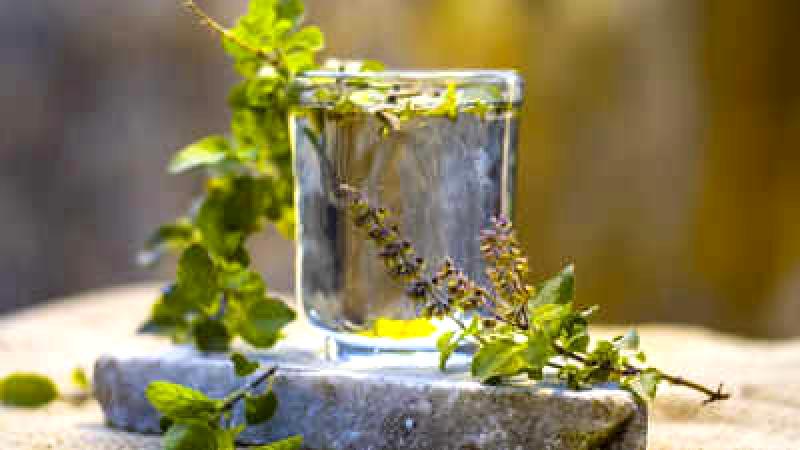
Tulsi, also known as Holy Basil, has a long history spanning thousands of years and is highly esteemed for its numerous medicinal attributes. It is referred to as Vishnupriya due to its connection with Lord Vishnu and is mentioned in ancient texts, indicating its religious importance as well as its therapeutic use in treating various ailments over generations. Belonging to the Lamiaceae family, Tulsi is a key component in Ayurvedic medicine and is utilized to address respiratory issues, viral infections, and more. Different parts of the Tulsi plant, scientifically known as Ocimum sanctum Linn, such as its leaves, stem, flower, root, and seeds, are all employed in traditional healing practices. Tulsi is valued for a wide array of health benefits including boosting immunity, reducing stress, enhancing digestion, detoxifying the liver and kidneys, promoting respiratory wellness, and regulating blood sugar levels, among others. Its leaves can be chewed for immediate relief from coughs and colds, or infused in boiling water for a fragrant tea. Tulsi water can also be consumed daily on an empty stomach after soaking the herb in warm water. Additionally, Holy Basil leaves can be utilized to garnish various food dishes like salads, cheeses, meats, and eggs. When it comes to the benefits of Tulsi water, it is particularly effective for alleviating colds, coughs, and sore throats. During the rainy season, its leaves can be boiled with tea or water to alleviate fevers associated with illnesses such as dengue, malaria, and seasonal flu. Mixing Tulsi leaves with honey is recommended as an Ayurvedic remedy for coughs, aiding in expelling mucus in respiratory conditions. Tulsi water can also be employed as a gargle to soothe a sore throat. Furthermore, Tulsi's therapeutic properties are advantageous for individuals with kidney stones, as consuming the juice of its leaves with honey is known to be beneficial. Overall, Tulsi is held in high regard for its holistic healing properties and is an essential component in traditional medicine.Helps with kidney stones removal
Tulsi can aid in reducing fasting glucose levels, blood cholesterol, and triglycerides in individuals with diabetes. Research published in the Global Science Research Journal suggests that consuming two to three tulsi leaves or one tablespoon of tulsi juice on an empty stomach can help lower blood sugar levels. Another study indicated that tulsi intake can notably decrease fasting blood glucose levels.
Useful for skin infections treatment
The antibacterial, anti-inflammatory, and antiviral properties of tulsi are helpful in treating skin infections. Applying tulsi juice can assist in dealing with fungal infections and various skin conditions. It is also effective in treating leukoderma.
Alleviates stress
Tulsi is considered an adaptogen, which aids in managing mood swings, promoting calmness, and enhancing mental clarity. It boosts the body's resilience to adapt to changing situations.
Promotes heart health
Holy basil is a rich source of vitamin C and antioxidants like eugenol, which safeguard the heart against the detrimental effects of free radicals. Its antioxidant content is on par with ginger, garlic, red grapes, and plums.
Reduces blood pressure
Holy basil is an Ayurvedic solution for various conditions, including lowering blood pressure. It is packed with potassium, vitamins A and C. For optimal outcomes, it is advisable to consume holy basil on an empty stomach daily for four to six weeks.











